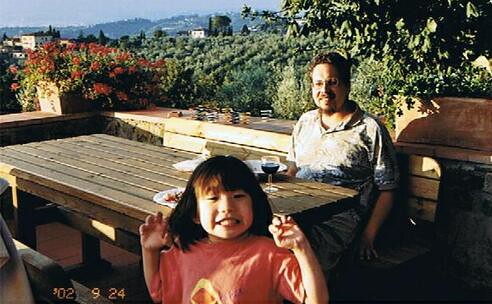|
|
🦋 The Narrative of Captivity
I've started reading Richard Slotkin's Regeneration through violence with the idea that I might be able to draw some parallels between his narrative of myth formation and Borges' stories... In service of that end, here is a passage from "Narrative of the Warrior and the Captive Maiden" (from The Aleph) and one from Slotkin's book.
John Williams' narrative, The Redeemed Captive, taught that the ultimate salvation of the soul itself was really at stake in the trial by captivity. One of Williams' daughters, who was very young when captured, could not be won from her captors in time for repatriation with her father. The result was typical of the fate of many captives: she forgot her language and her catechism and became at once a papist and a pagan savage, married to an Indian. Despite the efforts of her father and her family to bring her back, she refused all opportunities to resume her former life. On one occasion she returned to the neighborhood of her birthplace (Deerfield, MA) dressed as an Indian. Her friends clothed her in the English fashion and sent her to meeting, but she "indignantly threw off her clothes in the afternoon, and resumed the Indian blanket." By her own declaration she preferred the Indian way of life. ...she declared that she would never move again from Canada to New England because to do so would "endanger her soul."
Her visit occurred in 1740-41 at the height of the Great Awakening, and her presence in the congregation had been the occasion for "A Sermon Preached at Mansfield, August 4, 1741, at a Time set apart for Prayer for the Revival of Religion," by Pastor Solomon Williams. It was perhaps Williams' attempt to use her as an example of God's delivering a soul from bondage to the devil that made her afraid of "losing" in New England the "soul" she had developed in thirty-eight years of captivity.
-- Chapter 4, "Israel in Babylon"
Perhaps for one instant the two women saw that they were sisters; they were far from their beloved island in an incredible land. My grandmother, enunciating carefully, asked some question or other; the other woman replied haltingly, searching for the words and then repeating them, as though astonished at the old taste of them. It must have been fifteen years since she'd spoken her native language, and it was not easy to recover it. She said she was from Yorkshire, that her parents had emigrated out to Buenos Aires, that she had lost them in an Indian raid, that she had been carried off by the Indians, and that now she was the wife of a minor chieftain -- she'd given him two sons; he was very brave. She said all this little by little, in a clumsy sort of English interlarded with words from the Auracan or Pampas tongue, and behind the tale one caught glimpses of a savage and uncouth life... An Englishwoman, reduced to such barbarism! Moved by outrage and pity, my grandmother urged her not to go back. She swore to help her, swore to rescue her children. The other woman answered that she was happy, and she returned that night to the desert.
--"The Warrior and the Captive Maiden" (Hurley's translation)
 Further reading -- The Redeemed Captive; Narrative of the Captivity of Mary Rowlandson
posted evening of Wednesday, July 14th, 2010
➳ More posts about Regeneration through violence
➳ More posts about Readings
➳ More posts about The Aleph
➳ More posts about Short Stories
➳ More posts about Jorge Luis Borges
| |
|
Drop me a line! or, sign my Guestbook.
•
Check out Ellen's writing at Patch.com.
| |

